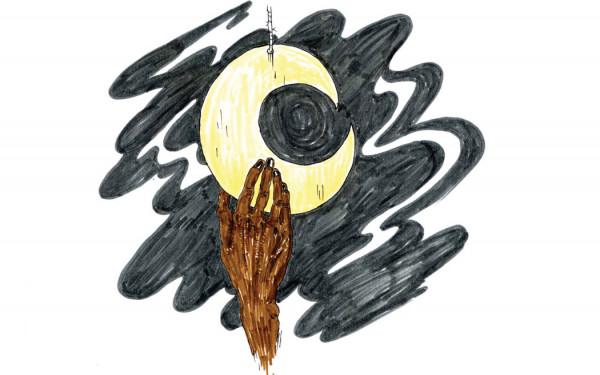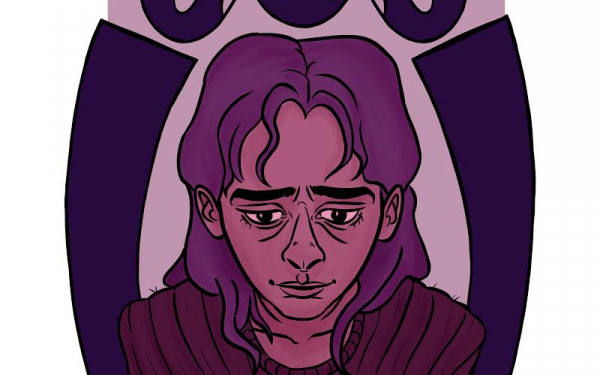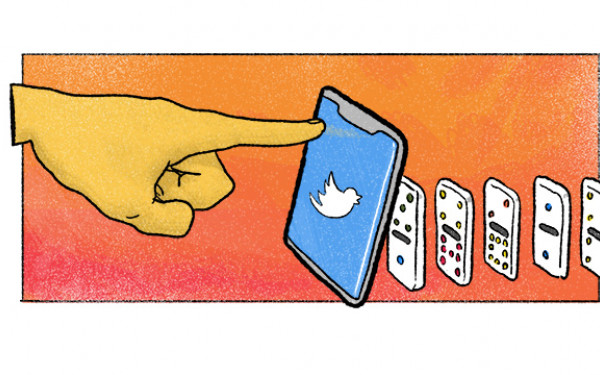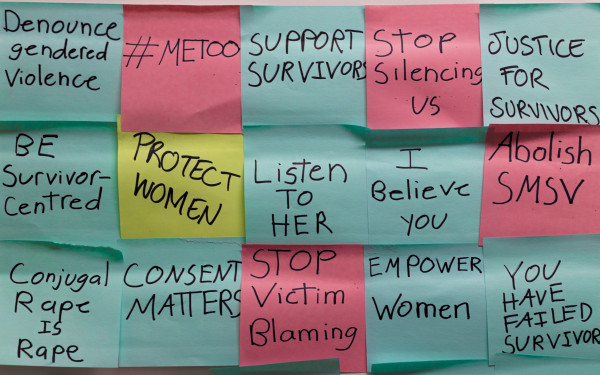The #MeToo Movement Is Bringing Survivors’ Stories to the Front. This Is Mine.
One Person’s Story of Assault, Survival and Resilience
Let me tell you the story of my rape.
When I was 16, I fell in love with a man 22 years my senior. The first time I saw him, it was a sunny, breezy day. He was sitting on a park bench near the home I grew up in, strumming a guitar and drinking wine out of a red plastic cup. Something about him drew me in. I walked over, asked if I could sit with him.
We talked about the Jack White solo album that had come out earlier that year, and Steinbeck books, and Buddhism. I found him very handsome and smart. None of the boys I knew were interested in the things he was interested in—the things I was interested in.
He tried to kiss me that day and I turned him down. But after I went home I decided that the next time he wanted to kiss me, I’d let him.
I can still remember how much I tingled that night, how much I longed for his lips and his touch. I had never felt so strongly for anyone before; I didn’t know what to do with those feelings.
I visited him while he gardened a few times. I could see his house from the front window of my room, and when I saw him out on the lawn I would walk by casually, as if I had stumbled upon him. It always gave me butterflies to talk to him.
The next time he invited me in, we talked about politics and sexuality and literature over coffee and cut up peaches. He said he would like to have sex with me. I said I’d never done it before. He told me not to be scared. I said okay.
I left his house with a borrowed Steinbeck book in hand. I felt irrevocably changed.
I remember thinking to myself, “I’m a woman now.” Really, I was just a child playing dress up. I know that now.
We began seeing each other every week, on Sundays. When I told my friends about him I pretended he was 19. A couple years later, I found out many of them knew all along.
It’s hard to pinpoint when things got bad with him. I think it happened progressively, over time. But I think there were traces of his dark side right from the start. I just couldn’t see.
It took me longer than it should have to realize that the sex was only ever about his pleasure, never mine. I remember begging him one day to go down on me, just once. I just wanted to know what it felt like. He never did.
He also wouldn’t look at me during. He didn’t want me to look at him either. Often when I looked into his face searching for his gaze, searching for a sign of intimacy besides our bodies pressed together, he would tell me to close my eyes. He would cover them if I didn’t, or hold my head to the side so I couldn’t see him.
There were times I told him no, I didn’t want to. I would always relent very soon after. At first it was inconsequential, I got over it quickly. Toward the end, when he wanted more from me, it caused me a lot of shame.
The particularly harrowing experiences started out few and far between. But after a few months it became routine for me to start crying by the end of it. Sometimes, it could make me feel so horrible. I don’t remember ever talking about the crying with him.
But while all this was happening, I was, in a very complicated way, so enamored with him. He had a mind that captivated me. I wanted to know his thoughts on everything under the sun.
He spoke to me like I was an adult, not a silly teenager. He read all my stories and poems, giving me feedback on every single one. I regularly borrowed books and CDs from him. In a neighborhood where I felt isolated, he was truly my closest friend. It was as if my heart burst every time he kissed me. So I tried my best to keep up with his wants and needs.
Inevitably there came a time when the pain caused by being “intimate” with him became too much to bear; it outweighed the flutter I got in my stomach when we were together.
That’s when it happened.
I said no, and actually stuck to it firmly for a long time. But he wouldn’t have it. I felt trapped. His body like a cage over me, holding me down. I pushed his hands off me with increasing violence, shaking my head, but my helplessness won. How did I think I was going to make it out of there?
And so I stopped. “Okay,” I said. So be it.
I left in tears. I think I remember holding my shoes in my hands. I sat out on the patio at my house for a long time. That was not the last time I spoke to him, but it was the last time I went over to see him.
“There is a reckoning going on, but many don’t want to hear it. They don’t want to change.”
Over the years, the way I feel about what happened changes. For a while I felt so incredibly close to being okay, that it was good enough for me. I got over the feeling that I had brought it all on myself. I could live with the scars, grow with them. I would go a few days without thinking about him, and when I would break the streak, I marveled at that fact—that I could go four or five days without thinking about it. I rarely made it further than that. Lately, I haven’t had that luxury.
When I hear stories of rape and sexual abuse, I can ache so badly it makes me tired. Hearing stories of women and girls suffering, in ways often so much worse than I did, can evoke such a visceral reaction at times—even when on the surface I look perfectly calm.
With the #metoo movement, the case of former United States Olympic gymnastics team doctor Larry Nassar, countless public figures being ousted all around, and now allegations of sexual misconduct at the school that is essentially my second home, I am exhausted. I am so exhausted.
Since the Harvey Weinstein scandal broke back in October, I’ve had to revisit that incident time and time again, re-analyzing his actions and mine, reprocessing it over and over. Throughout the heavy societal conversations about assault and harassment, my once-buried fears about what happened resurfaced. I often wonder now what I’d do if I saw him on the metro, if he came into my work. New fears have come up as well.
I’ve come to realize that there are many who want to get these conversations over with as quickly and quietly as possible. There is a reckoning going on, but many don’t want to hear it. They don’t want to change.
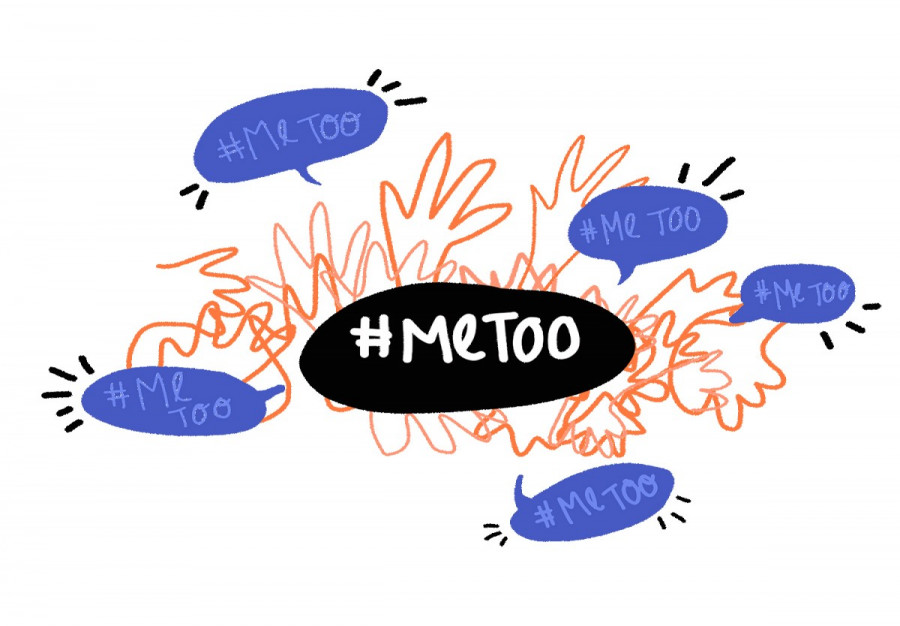
I can’t help but fear that I’m hurting for no reason, that everything will go back to the way it was when all this blows over, that all my pain will have been for nothing. I’m wondering how I can make sure that doesn’t come true. I’m wondering why the burden is on me to care so much.
It was a freeing realization when I learned how to stop blaming myself for what was done to me. I can now see the extent of his abuses towards me in a way that I just couldn’t when I was 17—how his actions greatly outweigh any responsibility I thought I had in it by going back there every week, by letting myself fall for a man I should’ve known was no good.
I’m older now, and the blame I once forced upon myself is gone. I see, with increasing clarity as each day passes, that this is not something I got myself into. This is something that is imposed upon me and countless other girls and women, in a systemic way.
The ones who are uninterested in getting to the root of the issue and making the changes needed to address sexual violence at its core are complicit in maintaining the systems of oppression that are a cause of the rape culture we live in.
They are the ones I blame now. I blame the bystanders, the ones trying to rush through the conversations, trying to wrap it up as quickly and quietly as possible. I blame the people who are refusing to listen, who are refusing to make a change. You did this to me.
I think women are so resilient. Every woman I’ve met who bears scars like mine wears them so powerfully, even when they don’t think so themselves. I often can’t believe how many women I share scars with, how many of us have learned to just keep surviving—keep thriving.
I ache when I think that women keep experiencing this pain because there are people who have the privilege of being blind to it. I wish those people could feel what I feel.
I’m not sure what I expected from writing my story down. Maybe it’ll bring some sort of change. Maybe it’ll change a mind, change the narrative. Maybe another woman will read this and will feel less alone. Maybe that’s the best I can do.



